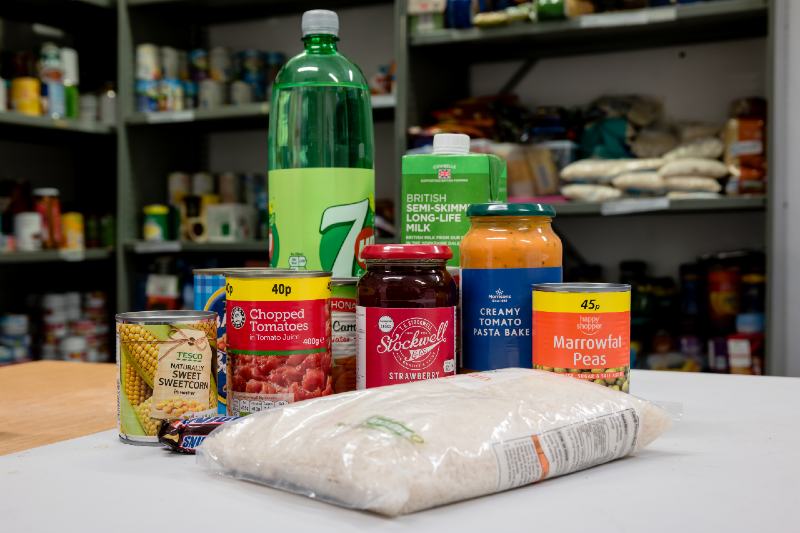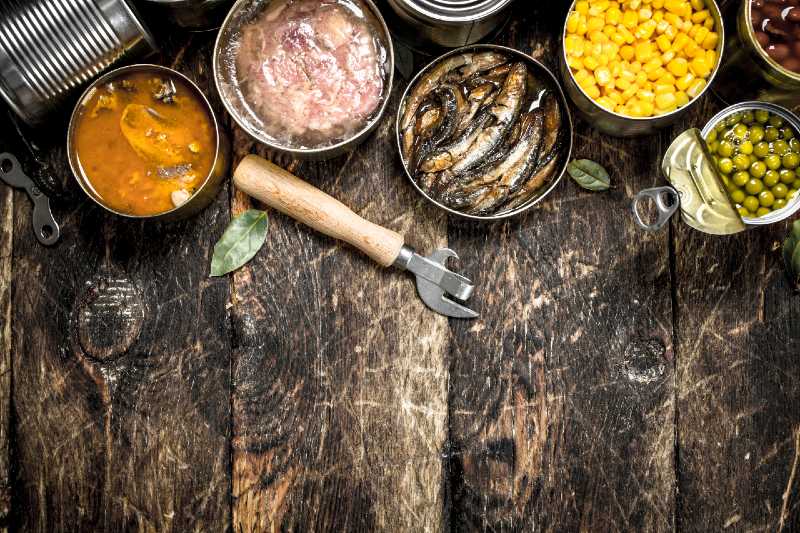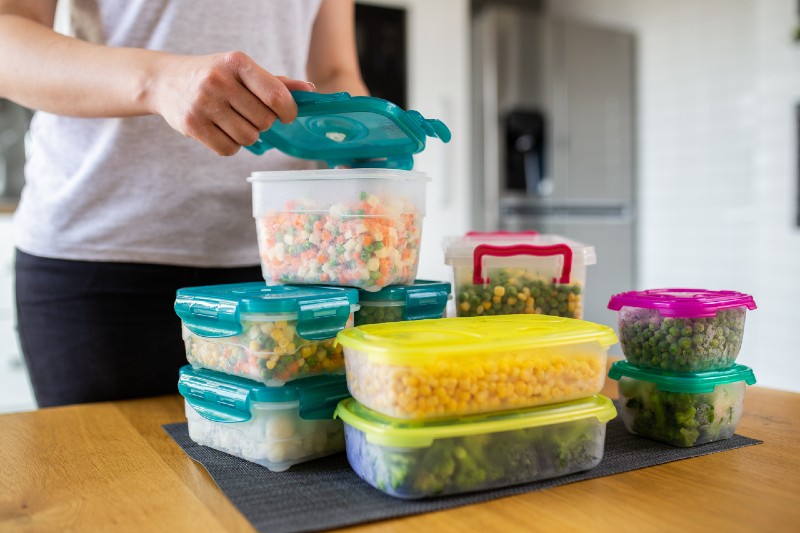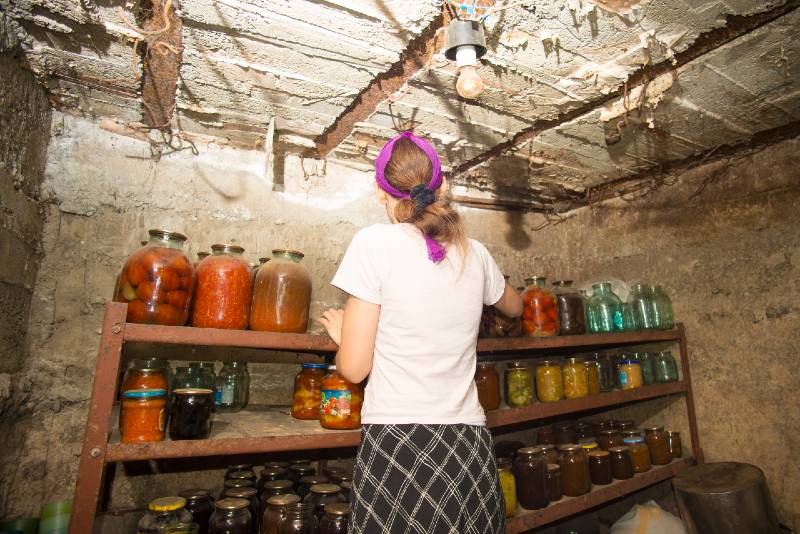Having something like a survival food kit meant you were labeled a “prepper,” like it that is somehow a bad thing. Preppers used to be laughed at and called “conspiracy theorists” for their beliefs in preparing themselves and their families for any and every upcoming hiccup that life might throw their way.
However, since the pandemic, hackers shutting down gas pipelines and meat manufacturers, rising food costs, weather disasters, and threats of war, everyday people are starting to think that maybe they, too should at least keep a survival food kit at the ready.
Getting started with building a survival food kit can seem overwhelming to many at first. What foods to add to the kit for the best nutrition? How long will the food last? How should I store the kit once I have it set up?
These are just some of the questions you may be asking yourself, and the reason this is so is that you’re used to just buying what you like to eat and only as much as needed for the next week or so each time you go to the grocery store.
Building a survival food kit doesn’t have to be overly complicated if you take on the process one step at a time.
RELATED: 43 Survival Food Items That Actually Taste Good
5 Easy Steps To Building The Ultimate Survival Food Kit
Step 1 – Decide on the Purpose of Your Survival Food Kit
You will need to ask yourself some questions to determine the primary use for your food kit first and foremost. Are you making the food kit for emergencies or conditions that confine you to home or for situations where you’ll need to grab the food kit, jump in your car, and go?
Will the kit be designed to stay in the car for emergencies while you’re in the vehicle away from home? Will the kit be expected to feed you and your family for just a few days or weeks or even months?
Step 2 – Determine the Storage Location for Your Survival Food Kit
Once you’ve decided on the purpose of your food kit, you’ll need to determine the place in your home or car where you intend on storing your food. You’ll need to keep in mind your intended size of the food supply which is directly based on how long the food should be able to feed you and your family since this will limit your storage space options.
Obviously, your car has limited space, so a 6-month supply of food probably won’t fit well nor is such a large amount of food in your car likely necessary anyway.
The storage location for your survival food kit can greatly affect the shelf-life or longevity of the food in your kit. You’ll want to store the food in a cool, dry location out of direct sunlight to ensure that your food remains good to eat for the longest length of time. Find a place in your house that fits these criteria, and be sure there is enough room for the amount of food or overall size of your kit.
Step 3 – Gather or Purchase Food for Your Survival Food Kit
As a general guideline, remember, you’ll want to store food that you already eat. There is no point in storing a bunch of cans of tuna fish if you and your family don’t even like to eat it.
Even if you have the extra funds to buy long-term freeze-dried storable foods, you’ll want to choose the types of food that you and your family already eat in their “fresh” form. Stick to foods that you fancy, but try to add a balance of nutrition to your kit in the process.
With that said, certain foods just can’t be stored well, period. Foods that have high fat or moisture content generally do not store well. Dried kinds of pasta, (white) rice, flour, sugar, and oatmeal all store quite well if they’re kept in properly sealed containers and the proper environmental conditions.
Canned goods typically store fairly well, however, you may consider choosing things like dried beans over canned beans for longer shelf-life and less weight.
You can purchase powdered alternatives for things like milk, eggs, butter, and even peanut butter. Powdered, dried foods are never the same as their fresh counterparts, even when reconstituted, however, they can still be quite good in many recipes.
Step 4 – Re-Pack Food Items for Longer Storage, if Necessary
Many foods can be repackaged to provide a better shelf-life. All of your dry food items will store well in a simple sealed container, however, they can also be placed into mylar bags along with oxygen absorbers and/or desiccant packs for moisture control.
You can then vacuum-seal the mylar bags for the ultimate protection for the foods in your kit. Many long-term freeze-dried storable foods that can be purchased are already packaged similarly for the best longevity, so no repackaging is usually necessary.
Step 5 – Eat and Rotate Food From Your Survival Food Kit
One of the key steps to your survival food kit is to remember to rotate out food that has reached or passed its expiration and replace it with fresh resupply. The easiest way to do this is to simply eat foods from your kit from time to time and promptly replace it. Again, this is why you’ll want to only stock foods in your kit that you and your family want to eat.
Always eat the food items that are the oldest in the kit first to ensure proper rotation. You may be tempted to choose a particular item from the kit based on what you’re “in the mood” for, however, you should avoid this and choose the item(s) that are nearest their end-of-life first.
As a bonus tip, you may wish to include items like can openers, spice or seasoning packs, fire starting, and cooking tools, etc. in your survival food kit as well, for convenience, especially if your kit will be of the grab-and-go type. Having these items right inside your kit can save time, and it can make the experience of whatever disaster or situation that required accessing your food kit in the first place less stressful to manage.
Whether a natural disaster, viral pandemic, or economic calamity, those that are prepared for the worst will always fare the best. Once considered “paranoid,” preppers are now considered wise. Join them in their wisdom. Start marking off your own prepper checklist… before the next event that clears the store shelves begins!
Visit ThePatrioticTone.com/prepper-checklist/
Article Source: https://EzineArticles.com/expert/Anthony_S_Carter/425880
Up Next:
- The Ultimate Bug Out Bag List For Every Survivalist
- Bug Out Bags For Women
- How to Lose a Stalker
Calling all preppers, craftsmen, bushmasters, outdoorsmen, and all-around skilled people, Survival Life needs YOU! Click here if you want to write for us.


